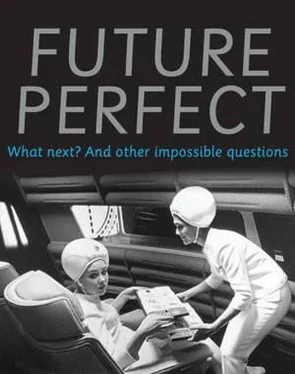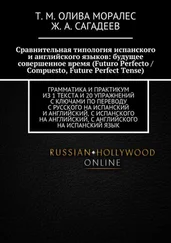Those seven days had been a bonanza of science news items (speed-of-light controversy, space-shuttle worries, new drugs), yet no one knew about them. None of those twentysomething students, supposedly the brightest of the bright, read newspapers or watched the television news (let alone knew where on the dial to find ABC Radio National). In a world with too many choices, you settle for what you know.
The second gap consists of the dispossessed and impoverished. Seventy per cent of the world’s population has never heard a dial tone, let alone handled a computer. This is where the first opportunity for the future comes up. What many of the world’s poor are doing is trying to jump the first 150 years of Peter Hall’s communications revolutions and go straight to the next one: elaborate mobile phones (cum texters, cum cameras, cum libraries). One superphone shared by a developing-world family could make a vast difference to their lives without the infrastructural clutter the rest of the world has had to put up with.
There is also the environmental question. Each laptop requires ten times its weight in carbon to manufacture. Many machines are used for only a fraction of their possible lifetimes (fashion again). As long as they haven’t been used much to play games, which burns up cooling systems, they can easily be exported to developing countries for free distribution and a valuable second life. The European Union is legislating to make this happen.
The new technology could, indeed, be a means for bringing education and enlightenment to those so far deprived. But it is a big challenge and needs effective policy to make it happen.
* * * *
On the creative side the challenge is trickier. Until now it has been assumed that being in the communications business is a bit like becoming a rock star-muck about in the garage long enough, do enough gigs and, with luck, you’ll make it. There are plenty of media courses around and thousands of students enrolled, but I come across few who have a solid preparation for broadcast program production or for journalism. They can juggle gadgetry like wunderkinder , but don’t ask them to write a program script.
Which brings me to the technology itself.
Each new step in communication is invariably greeted with fear and loathing. Gutenberg’s books were resisted by the Church because they threatened to diminish the power of the clergy. Offering the Bible in English instead of only Latin was also a risky business as both Wycliffe and Tyndale discovered. Typewriters (as Ted Hughes records below) seemed threatening; computers (‘word processors’) much worse. Fleet Street resisted the Murdoch move from hot metal to desktop publishing. Video promised to kill the radio star.
We are all still here-newspapers, radio, books. More or less. But the style has changed. This is what the late Ted Hughes, former British poet laureate and widower of Sylvia Plath, wrote about his own experience. When young, he used to make summaries of plays or novels for a film company. Then, at 25, he turned from the fountain pen directly to the typewriter. ‘I realized instantly that my sentences became three times as long, much longer. My subordinate clauses flowered and multiplied and ramified away down the length of the page…’
So much for typewriters, then came the e-revolution. Ted Hughes had been a judge on a children’s writing competition for over three decades. Entries used to be no more than a page or two. ‘But in the early eighties we suddenly began to get seventy- and eighty-page works. These were usually space fiction, always very inventive and always extraordinarily fluent-a definite impression of a command of words and prose, but without exception strangely boring. It was almost impossible to read them through.’ Word processors had arrived!
Now, it happens that I still use a mechanical typewriter to prepare all my radio scripts. This forces me to be precise and make only minor alterations when we get to studio. I do this for a number of reasons.
First, it frees the computer on which the recorded interviews are played. Second, I use recycled paper. All the thousands of uncollected print-outs, chucked press releases, failed photocopies, provide a colossal mountain of wasted paper. I turn the pages over and type. My paper bill over 35 years has been nil. Third, I know my using a typewriter infuriates the neophiliacs. All the chaps who have spent two decades banging on about processing systems and slim-line gadgets perceive my rejection of their obsessions as an attack on their manhood. In all this time NOT ONE PERSON has mentioned, as Ted Hughes did, writing style and content.
Meanwhile, of course, -while no one’s looking, I write books and articles on computers. You have to. Editors refuse to accept actual pages and, frankly, sending whole books down the phone lines is almost magically impressive. But the question of style remains unexplored. I suspect the problems have been solved in professional publishing, where the efficiencies of receiving movable electronic print make up for the extra pains great writers may formerly have taken with their prose. The writing of private people and managers has become both bland and terrifyingly prolix. It looks so good on screen or in print: neat paragraphs, marching vertically forever, no corrections visible-as finished as an Act of Parliament. (For a comparison of the poetry of the King James Bible version of the 23rd Psalm with what it might look like sent as a text message, see the end of this chapter.)
Is style also affected by the torrent of e-messages? I now spend an extra two hours every day answering this stuff in terse non-sentences. Am I, are you, now writing more like R2D2 than like Milton? And what of those of us, young and old, who spend much of our days glued to screens? The brain scientist Professor Susan Greenfield is worried that we will become so isolated, our communications so chopped up in electronic bits, that we shall be altered as human beings. She asks in Tomorrow’s People :
Will those who live in a century from now be socially inept, by the standards of today? If virtual friends replace flesh-and-blood ones, we shall not need to learn social skills, nor think about the unwanted and unpredictable reactions of others. So within this collective consciousness there need be no interaction, no action or response but rather, should we choose it, a passivity in which we are shielded from any disagreement or disharmony.
The key word there is ‘choose’.
* * * *
In these ways our lives have been consumed by the e-revolution. Will the future make it all simpler? Well, the possibilities are staggering.
Ten years ago, in Normal Service , I conjured the scenario of a person (P) on a Very Fast Train (dream on!) wanting a book. In P’s briefcase is a book with blank pages made of a plastic material that both feels and smells like high-quality paper. P takes out what I then called a Hypertel, but which now is more likely to be a multifunction mobile phone. The phone’s screen presents an Amazon.com-like range of available titles, P chooses one, and the required work now infuses the blank pages: pictures, colour, print, everything. P then settles down to read, making the odd note on selected pages that later can be printed off. When the book is finished, another button is pressed and the volume goes blank again, ready for the next infusion.
The result of this kind of technology could be the elimination of 95 per cent of routine publications. Only collectors’ items, sentimental choices and rarities need fill your shelves. In future your library will be in your pocket.
But will it? A decade on I still see walls of books in shops, and warehouses crammed with backlists. The technological possibilities are, however, much closer. In 2006, at James Cook University in Townsville, I met Mohan Jacob, an engineer from India who is trying to use new materials-ceramics and superconductors-to improve reception and transmission of mobile phones. He also showed me a polymer sheet. It represents, he tells me with huge enthusiasm, the next stage on from Gutenberg. The material can receive electronic signals that alter the configuration of its molecules. The result is print, changeable print.
Читать дальше












